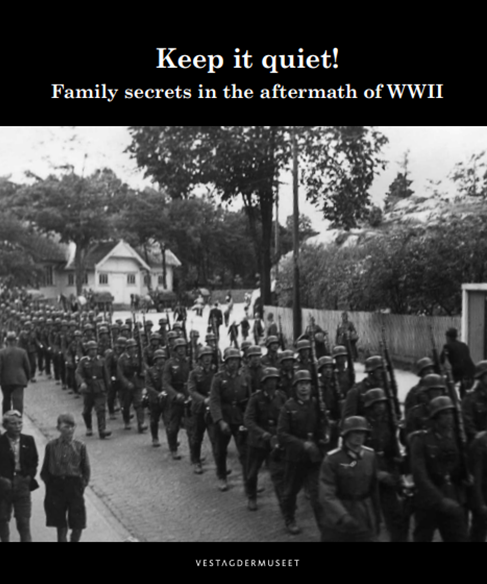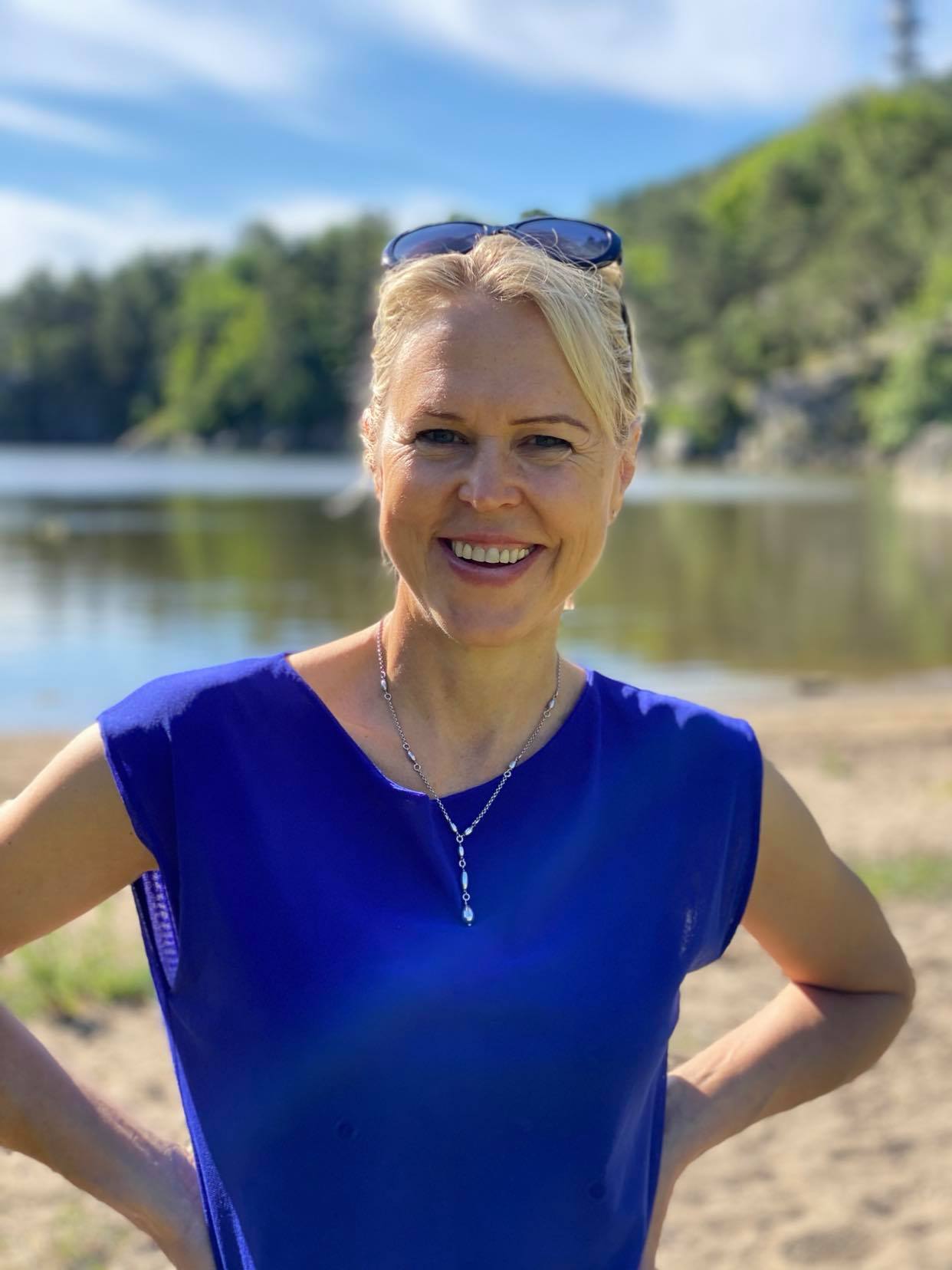 VU FC invites you to a research lecture by dr. Kathrin Pabst on Keep it quiet! Family secrets in the aftermaths of WWII. Long-term consequences of the Second World War in Norway, and its repercussions within some families. The lecture is the event of a seminar series on Contested heritage, memory, and identity practices: Eastern European and global contexts, organized by the Connective Digital Memory in the Borderlands project, supported by European Social Fund (project No. 09.3.3-LMT-K-712-17-0027) under grant agreement with the Research Council of Lithuania (LMTLT).
VU FC invites you to a research lecture by dr. Kathrin Pabst on Keep it quiet! Family secrets in the aftermaths of WWII. Long-term consequences of the Second World War in Norway, and its repercussions within some families. The lecture is the event of a seminar series on Contested heritage, memory, and identity practices: Eastern European and global contexts, organized by the Connective Digital Memory in the Borderlands project, supported by European Social Fund (project No. 09.3.3-LMT-K-712-17-0027) under grant agreement with the Research Council of Lithuania (LMTLT).
February 24, 2022, 4pm EET / 3 PM CET, online
German ethnologist, researcher, author and speaker dr. Kathrin Pabst, who is currently on leave from her position as Head of the Scientific Department at the Vest-Agder Museum in Kristiansand, Norway, to lead “Identity on the Line,” the EU-cofunded, large-scale cooperation project.
Keep it quiet! Family secrets in the aftermath of WWII
Reserve a seat and access the event link: https://www.eventbrite.co.uk/e/keep-it-quiet-family-secrets-in-the-aftermath-of-wwii-tickets-268944338757
About the lecture
In the years between 1940 and 1945 some 500 000 German soldiers were temporarily deployed to Norway in order to occupy a country whose population numbered 3.0 million people. This implies that in that period one out of six persons could be Germans, and in certain parts of the country the percentage was even higher. Throughout the five years of occupation the German troops approached the Norwegian local society in a number of different ways. They recruited political sympathizers, and they punished their adversaries hard and brutally. They hired Norwegians to build military installations or roads, they fell in love with Norwegian girls, married them and got them pregnant. In 1945, when the occupation was over, the Germans departed. But they had left their traces, and more than 75 years later there are still many who struggle with the long-term consequences of what happened during the war.
The condemnation of those who had collaborated with the Germans could be strong, both from the Norwegian authorities and from the local society. Many women who had had an affair with a German soldier, had their hair cut off publicly and were rejected by their families and the people around them. Many of the children whose father was a German soldier were branded as “German bastards”, and some even stowed away in earmarked institutions. At the same time other kinds of relations between Norwegians and the occupiers were suppressed in the public debate, such as the large number of profiteering companies and individuals who had worked for the Germans and supplied them with goods and materials they needed. Incidents that took place during or after the war could result in different types of long-term consequences, regardless the side one was on. Many of those who fought against the Germans, found that life in the aftermath was hard to handle, and even though many members of the resistance were decorated and honoured, there were some who had risked their lives for Norway without feeling that their contribution and sacrifice was properly acknowledged and appreciated.
Even today the history of the Second World War contributes to forming people’s selfimage, their family history and identity. In some families it is still, two to three generations later, challenging to talk about what happened. This is particularly so if family members were on the “wrong side” during the war – those who supported the occupier or fraternized with the foreign troops in a way that could be considered improper or even treacherous.
But even among those who had been on the “right side”, had to cope with severe long-term effects of the war, for example after imprisonment and torture. This is what constitutes the core of Vest-Agder Museums’s documentation and exhibition project, “Keep it quiet! Family Secrets in the aftermath of WWII”: The different personal attempts to handle what happened during the temporary migration of more than 500 000 German soldiers from 1940 to 1945.
 Speaker
Speaker
Dr. Kathrin Pabst is a German ethnologist, researcher, author and speaker, who is currently on leave from her position as Head of the Scientific Department at the Vest-Agder Museum in Kristiansand, Norway, to lead “Identity on the Line,” the EU-cofunded, large-scale cooperation project working with the long-term consequences of migration and intergenerational transfer of trauma. In addition, she is in charge of a new research project about the long-term consequences of the Untold, financed by the Arts Council Norway.
Dr. Pabst has broad experience in both practical and theoretical sides of working with challenging, sensitive or taboo-related subjects and personal narratives and holds a PhD in professional ethics. Her doctoral dissertation focused on moral challenges museum employees might face when working with sensitive or challenging topics involving external cooperation. Also, she is the Chair of ICOMs International Committee on Ethical Dilemmas, IC Ethics. More information about her CV and list of publications can be found here: www.linkedin.com/in/kathrin-pabst/
